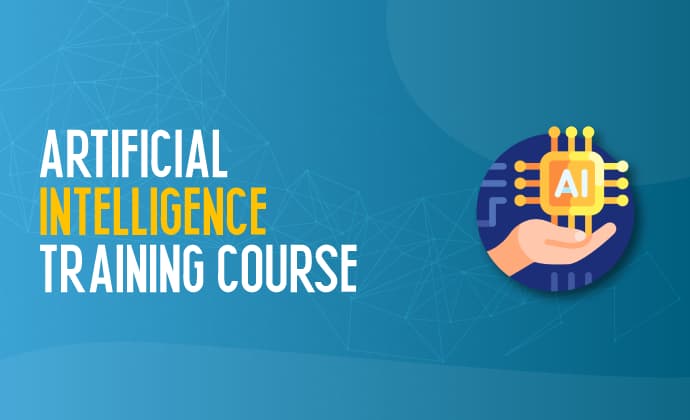Course Details
In today’s tech-driven world, artificial intelligence (AI) is transforming how we live and work. “Accelerate Your AI Journey: A Fun, Hands-On Course for All Ages” is a beginner-friendly, creative, and inclusive 8-week course offered right here in Lahore, Pakistan—designed for curious children (8+) and adult learners alike.
Over 32 hours (two 2-hour sessions per week), participants will explore how smart machines think, learn, and make decisions. Through storytelling, interactive visual tools like Scratch and Google Teachable Machine, and an optional Python track for advanced learners, everyone will build simple AI models—from image and voice recognition to gesture-based games.
No prior coding or AI experience is required—only curiosity and a willingness to explore. Along the way, you'll also engage in hands-on projects that develop real-world skills such as creativity, critical thinking, teamwork, and awareness of ethical AI.
Key Features
- Beginner-Friendly & Inclusive – Perfect for children (8+) and adults, with no prior experience in AI or coding required.
- Hands-On, Practical Learning – Build real AI models using Scratch and Google Teachable Machine, with an optional Python track for those who want to go deeper.
- Engaging for All Ages – A mix of storytelling, visual demonstrations, and project-based activities keeps kids motivated while providing technical insights for professionals.
- Ethics & Responsible AI – Learn about bias, fairness, and privacy in AI in a way that’s easy for everyone to understand.
- Create & Showcase Your Own AI Project – Every learner completes a personal AI project to present at the end of the course.
- Flexible Learning Modes – Choose from on-site classes in Lahore, live online sessions, or a hybrid option.
- Future-Ready Skill Development – Strengthen problem-solving, creativity, critical thinking, and teamwork—skills essential for thriving in the AI era.
What You’ll Achieve
By completing this course, you will be able to:
- Understand what AI is, how it works, and how it’s used in daily life.
- Explain how machines learn from data and detect patterns.
- Train AI models without coding using Teachable Machine.
- Create interactive AI projects in Scratch (e.g., voice, image, or gesture-controlled tools and games).
- (Optional) Write simple Python scripts using NumPy, Pandas, and scikit-learn to process data and train AI models.
- Apply AI concepts to real-world challenges like image recognition, chatbots, and data analysis.
- Identify and discuss AI ethics, including bias, fairness, and privacy.
- Collaborate effectively in teams to design, build, and present AI projects.
- Present your AI creations confidently to peers, educators, or potential employers.
- Build the curiosity and confidence to continue learning advanced AI topics.
Who Can Join (Prerequisites)
- Age 8+ (kids, teens, and adults welcome)
- Basic computer skills (using a browser, keyboard, and mouse)
- Curiosity and willingness to learn
- Access to a computer or tablet with internet
- Microphone & webcam (recommended for online learners)
- No previous coding or AI knowledge required
- (Optional Advanced Track) Basic familiarity with algebra or probability is useful but not mandatory
Career & Future Opportunities
For Adults – After completing this course, you’ll be equipped to explore or pursue roles such as:
- Junior AI Developer / Data Analyst – Analyzing datasets using Python and AI libraries.
- AI Project Assistant – Supporting model training, testing, and deployment.
- Automation & Chatbot Developer – Building rule-based chatbots or integrating no-code AI tools into websites.
- AI Teaching Assistant – Assisting in AI workshops for schools, coding clubs, or community programs.
- Game & Interactive Media Developer – Creating AI-powered games, educational apps, and tools.
- Freelance AI Services – Offering basic predictive models, image classification, and no-code AI integrations for businesses.
For Younger Learners – This course lays the groundwork for future careers, such as:
- Machine Learning Engineer
- Data Scientist
- AI Researcher
- Robotics Engineer
- Creative Technologist
- Game Developer (AI specialization)
Course Outline:
Week 1 – Getting Started with AI
- Module 1: Welcome & Course Orientation
- Introduction to the course goals, tools, and expectations.
- Icebreaker activity: “AI in My Life” discussion.
Module 2: What is AI?
- Everyday examples: smart assistants, recommendation systems, robots.
- Activity: Identify AI around you
Module 3: Human vs. Machine Intelligence
- How humans think vs. how machines process data.
- Group discussion: Strengths and limits of both.
Module 4: Creative Exercise – Design Your AI Helper
- Draw or digitally design a personal AI assistant.
- Share ideas with the group.
Week 2 – How Machines Learn
Module 5: Learning Like Humans and Machines
- Analogy between human learning and computer learning.
Module 6: Understanding Patterns
- How to recognize similarities in images, sounds, and text.
- Sorting activity: shape/color classification game.
Module 7: Introduction to Google Teachable Machine
- How to train a model visually without coding.
Module 8: Hands-On Teachable Machine Demo
- Train a simple image recognition or sound model.
Practical (Week 1 and 2 ) :
- AI Helper Design Challenge
- Draw or digitally design your dream AI assistant and describe its abilities.
- (Kids) Focus on creativity; (Adults) Consider realistic AI features.
- Shape & Color Classifier Game
- Group activity where students sort shapes/colors and discuss how a computer might do it.
- Builds understanding of pattern recognition.
- Hand Gesture Recognition (Teachable Machine)
- Train a model to recognize hand signs like thumbs up, thumbs down, wave.
- Connect to a Scratch project to trigger animations.
Week 3 – AI Tasks in Action
Module 9: Types of AI Tasks
- Vision, speech, and text recognition explained.
Module 10: Chatbots & Voice Assistants
- Interact with AI assistants to see capabilities.
Module 11: Build Your First AI Model (No-Code)
Train a Teachable Machine model for a custom task.
Module 12: (Optional Advanced) Python Peek
- Quick look at scikit-learn for similar tasks.
Week 4 – Understanding Data
Module 13: Why Data Matters
- Data as fuel for AI; examples from real life.
Module 14: Good vs. Bad Data
- Clean vs. noisy vs. biased datasets.
Module 15: Data Privacy & Safety
- What personal data to protect and why.
Module 16: Mini-Project: Simple Survey & Analysis
- Collect fun data, then visualize results (spreadsheet or basic Python)
Practical (Week 3 and 4 ) :
- AI Mood Detector
- Use Teachable Machine to classify happy, sad, neutral facial expressions.
- (Kids) Trigger different animations in Scratch; (Adults) Explore bias in emotion recognition.
- Animal Sound Identifier
- Train a sound recognition model to classify animal noises (dog, cat, bird).
- Display results in Scratch or a simple web page.
- Mini Survey & AI Guessing Game
- Collect data from classmates (favorite fruit, sport, color).
- Train an AI model to guess preferences based on answers.
Week 5 – Creative AI Tools
Module 17: Introduction to Scratch for AI
- Navigating Scratch and extensions.
Module 18: Building an AI-Powered Scratch Game
- Create a voice- or motion-controlled animation/game.
Module 19: Combining Scratch with Teachable Machine
- Import a trained model into Scratch for interaction.
Module 20: (Optional Advanced) Python Data Basics
- Intro to Jupyter Notebook, NumPy, Pandas.
Week 6 – AI Ethics & Responsibility
Module 21: AI Mistakes & Limitations
- Why AI makes errors and how to handle them.
Module 22: Fairness in AI
- Avoiding bias; AI treating people equally.
Module 23: Responsible AI Use
- Deciding when humans should stay in control.
Module 24: Group Debate: Should AI Do Everything?
- Discuss self-driving cars, AI in schools, etc.
Practical (Week 5 and 6 ) :
- Voice-Controlled Game in Scratch
- Use microphone input to control a game character (jump when you say “jump”).
- Great for understanding voice-to-action AI mapping.
- Fruit Classifier
- Use images of apples, bananas, and oranges to train a classifier.
- Show classification results on-screen with fun animations.
- AI Quiz Bot
- Build a rule-based chatbot (using Scratch or Python’s basic chatbot libraries).
- Add AI-generated responses using Teachable Machine or an API.
Week 7 – Planning Your First AI Project
Module 25: Project Idea Brainstorm
- Examples: emotion detector, pet identifier, quiz chatbot.
Module 26: Forming Teams & Assigning Roles
- Designer, developer, tester, presenter.
Module 27: Project Planning & Data Collection
- Choosing tools, preparing datasets.
Module 28: Start Building Your Project
- Train models, set up Scratch/Python logic.
Week 8 – Showcase & Next Steps
Module 29: Continue Building & Testing
- Debugging and improving the project.
Module 30: Final Touches & Presentation Prep
- Practice explaining your project.
Module 31: Project Showcase
- Present to peers, parents, or invited guests.
Module 32: Reflection & AI Learning Roadmap
- Discuss future AI learning paths and resources.
- Certificate distribution & celebration.
Practical (Week 7 and 8 ) :
- Smart Pet Identifier
- Train AI to recognize a cat, a dog, rabbit.
- Create a “pet info” display in Scratch or a simple Python app.
- Gesture-Controlled Music Player
- Use hand gestures to control play/pause in Scratch or Python.
- Integrates computer vision with audio control.
- Emotion-to-Story Generator
- Detect mood with Teachable Machine and trigger different stories or animations.
(Adults) Can extend to generate text using simple Python scripts.
- Advanced (Optional for Adults) CT Detection with Python (OpenCV)
- Detect common household items with a webcam.
- Apply filters or effects when objects are detected.
- Basic Text Sentiment Analysis
- Use Python + a pre-trained model to classify text as positive, neutral, or negative.
- Compare results with human judgment.
- AI Image Sorting Tool
- Build a Python script that automatically sorts images into folders based on classification.
Conclusion
By the end of this course in Lahore, you’ll do more than just understand AI—you’ll have created it. You’ll present your very own AI project—whether it’s an emotion-detecting game, a fruit classifier, or a gesture-controlled animation—in Scratch or Python. You’ll leave with:
- Real, hands-on experience building AI models
- A completed AI project to showcase
- A course completion certificate
- Confidence to explore more advanced AI topics
Whether you’re a parent wanting to spark early tech interest, an adult exploring new career pathways, or a student preparing for an AI-powered future, this course equips you with the foundational skills to thrive.
Course Curriculum

Ramzan
DeveloperI am a web developer with a vast array of knowledge in many different front end and back end languages, responsive frameworks, databases, and best code practices









